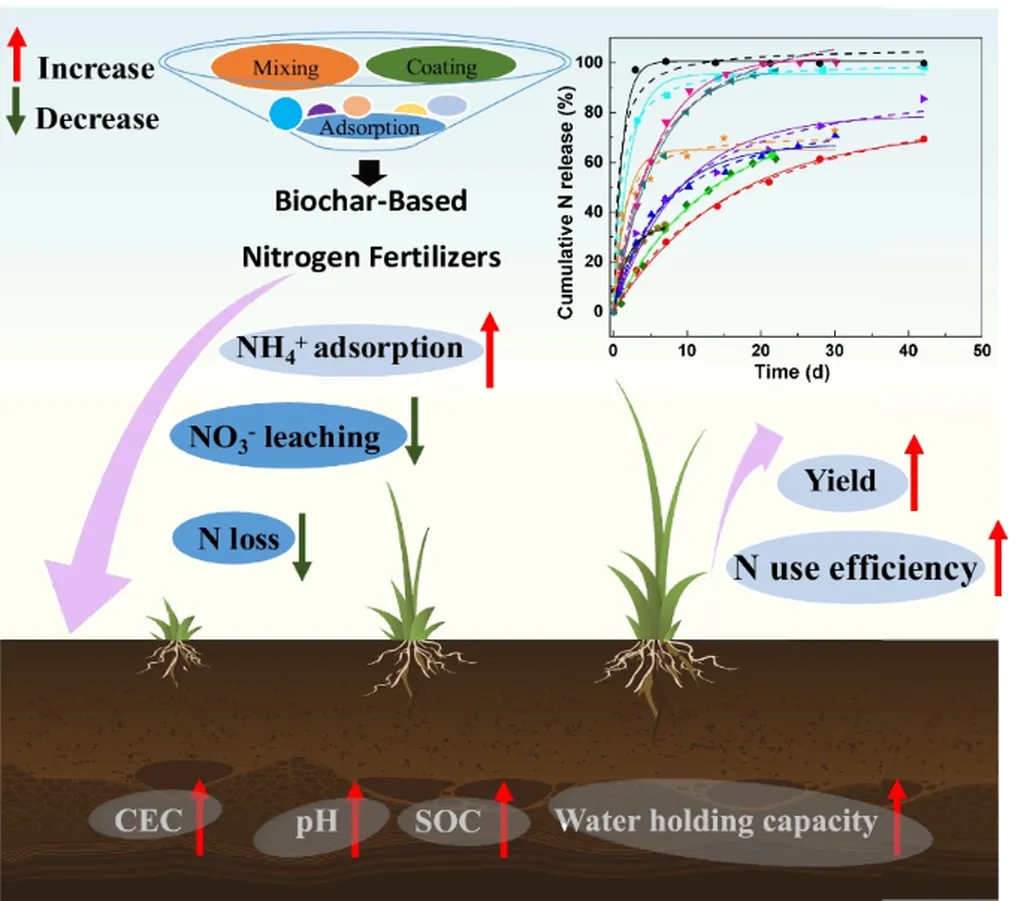In the heart of Anhui, China, a groundbreaking study led by Cece Qiao from the College of Resource and Environment at Anhui Science and Technology University is reshaping our understanding of soil reclamation and sustainable agriculture. Qiao’s research, published in the journal *Frontiers in Plant Science* (translated as “Plant Science Frontiers”), explores how bio-organic fertilizers can transform reclaimed soils into productive farmland, offering promising implications for the energy sector and beyond.
Soil reclamation is a critical strategy for restoring degraded land, but the intricate microbiological processes that drive soil quality improvement have remained largely mysterious. Qiao’s study delves into this complexity, focusing on the impact of different fertilization treatments on the rhizosphere soil bacterial community in reclaimed paddy soil. The experiment compared chemical fertilizers (CF), organic fertilizers (OF), and a novel bio-organic fertilizer enriched with Bacillus subtilis (BOF).
The results are striking. BOF significantly enhanced rice yield and improved soil attributes, including a reduction in soil pH and an increase in microbial diversity. “The bio-organic fertilizer not only boosted crop productivity but also fostered a more diverse and beneficial microbial community in the soil,” Qiao explains. This enhanced diversity is crucial for sustainable agriculture, as it promotes soil health and resilience.
One of the most intriguing findings was the pronounced effect of BOF on the enrichment of indigenous Bosea species in the rhizosphere. Metabolomic analysis revealed that the relative abundance of Bosea was positively associated with increased levels of aromatic compounds such as benzoic acid and tropolone. These compounds are potentially linked to improved soil functionality, suggesting that the synergistic interaction between B. subtilis and native Bosea populations could be a key driver of soil health.
The implications of this research extend far beyond the rice paddies of Anhui. In an era of climate change and increasing demand for sustainable energy, the ability to reclaim degraded land and enhance its productivity is more important than ever. “This study provides a roadmap for leveraging microbial communities to improve soil quality and crop yields,” Qiao notes. “It offers a promising avenue for sustainable agriculture and ecological restoration.”
For the energy sector, the potential is immense. Reclaimed soils can be used for growing energy crops, which can then be converted into biofuels. By enhancing soil health and productivity, bio-organic fertilizers like BOF can contribute to a more sustainable and secure energy future. Moreover, the insights gained from this research could inform the development of new fertilizers and soil amendments tailored to specific microbial communities, further boosting agricultural productivity and sustainability.
As we grapple with the challenges of feeding a growing population and mitigating climate change, Qiao’s research offers a beacon of hope. By unlocking the secrets of the soil microbiome, we can pave the way for a more sustainable and productive future. “This is just the beginning,” Qiao says. “There’s so much more to learn about the complex interactions between microbes and plants, and how we can harness these relationships for the benefit of agriculture and the environment.”
In the quest for sustainable agriculture and energy, Qiao’s work serves as a reminder that the answers we seek may lie not in the stars, but in the soil beneath our feet. As we continue to explore and understand the intricate web of life in the soil, we open up new possibilities for a more sustainable and resilient future.

